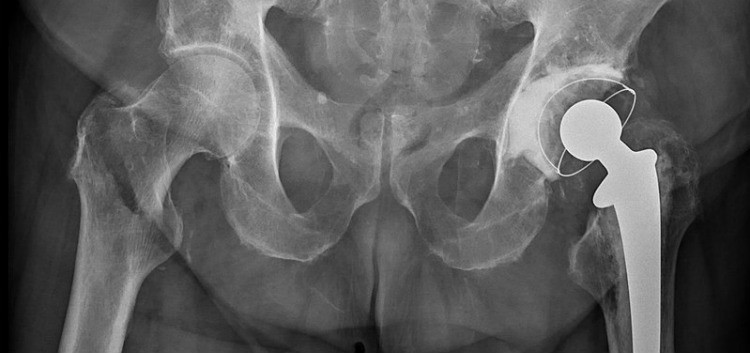Maryland Federal Judge Greenlights 200+ Smith & Nephew Hip Implant Lawsuits

A US District Judge in Maryland will allow over 200 lawsuits filed against British hip implant manufacturer Smith & Nephew to continue, ruling that five state law claims over the Birmingham Hip Resurfacing system are not preempted by the device’s FDA clearance, according to Reuters.
Smith & Nephew Must Face Hip Implant Lawsuits, Judge Rules
More than 200 hip implant patients have filed suit against Smith & Nephew, the British medical device manufacturer behind Birmingham Hip Resurfacing products. In their lawsuits, the plaintiffs accuse Smith & Nephew of manufacturing and marketing a defective metal-on-metal hip implant that has left thousands of patients suffering from severe and costly complications.
The Birmingham Hip Resurfacing system, plaintiffs say, harbors significant design defects that can lead to premature device failure, forcing patients back into the operating room for invasive revision surgeries. The lawsuits are so similar in their allegations that, in April 2017, a panel of federal judges felt it appropriate to consolidate the claims as a Multi-District Litigation.
Birmingham Hip MDL In Maryland Federal Court
Soon after the Federal Panel on Multi-District Litigation announced its decision, Birmingham Hip lawsuits from across the country were being transferred to the US District Court of Maryland, where Judge Catherine C. Blake is now guiding coordinated pre-trial proceedings.
The cases hit a roadblock, however, in October of that year, when Smith & Nephew filed a global Motion to Dismiss, asking Judge Blake to throw the lawsuits out of her court en masse. In its motion, Smith & Nephew argued that the plaintiffs’ claims for compensation are preempted by federal regulation.
The Conflict Between State Liability & Federal Requirements
The case against Smith & Nephew, in the main, is based on various tenets of state law. The plaintiffs accuse the British company of designing and manufacturing the Birmingham Hip in a negligent manner, without sufficient care for public health. The patients also claim that Smith & Nephew has failed to warn the public and health community of the hip replacement system’s risks, going so far as to accuse the manufacturer of concealing adverse event reports from the US Food & Drug Administration.
These allegations are all based in state common law principles. In court documents, Smith & Nephew has argued that, as a product cleared for marketing and sale in the United States by a federal agency, the FDA, the Birmingham Hip Resurfacing system can’t be touched by state law-based allegations of negligence and misrepresentation. The claims, in other words, are preempted by federal regulation, according to Smith & Nephew.
Smith & Nephew Violated FDA Clearance, Plaintiffs Argue
The plaintiffs, however, have an answer to this argument. In allegedly misrepresenting the Birmingham Hip’s safety to the public, the FDA and healthcare professionals at large, the patients claim, Smith & Nephew violated the terms of its FDA clearance. That violation, plaintiffs continue, opens the company up to civil liability, including liability imposed under state laws regarding negligent and fraudulent medical device sales.
Maryland Judge Preserves Five State Law Claims
In a 28-page opinion rendered on March 26, 2018, Judge Blake denied the majority of Smith & Nephew’s objections. The Judge has allowed five of the plaintiffs’ state law-based claims to stand without alteration, ruling that only three of their other claims should be dismissed.
Specifically, Judge Blake has thrown out two strict liability claims leveled by the hip implant patients, ruling that these two claims would “differ from or add to FDA requirements.” Five remaining claims, on the other hand, can go forward, the Judge writes, “because they are traditional state law claims, may be established by conduct that also violates federal regulations, and have been sufficiently pleaded.”
Metallosis & Hip Replacement Complications
In her opinion, Judge Blake sounds sympathetic to the plaintiff’s case. The Judge’s introduction to the order states outright that, “unlike the naturally occurring [hip joint], friction between the metal components of the BHR system, a consequence of movement within the joint, causes metal debris to accumulate within the joint and, eventually, the bloodstream.”
“Far From Benign”
With these words, Judge Blake lends credence to the long-standing theory of metallosis, which blames the gradual wear within metal-on-metal implants for many of the technology’s reported complications. Judge Blake outlines the current medical understanding in depth:
“Far from benign, these shavings can cause significant medical complications such as swelling and pain, metallosis, immune reactions, pseudotumors, and premature loosening of the BHR device, that ultimately requires serious corrective surgery. Patients suffering from complications must undergo total hip replacements – surgeries to implant an entirely new ball and socket structure that are decidedly more complicated and invasive than those required to implant the BHR device.”
Judge Blake also notes the “international consensus” on metal-on-metal hip implants. Researchers around the world have long-agreed that metal-on-metal implants pose unique dangers, including the development of metallosis.
Yet, in product advertisements, Smith & Nephew touted the Birmingham Hip Resurfacing system’s alleged safety, even contracting the device’s inventor to claim that his implant was not associated with metallosis.
2015 Recall Noted “Unreasonably High Failure Rates”
That narrative fell apart in 2015, when Smith & Nephew recalled many of its Birmingham-branded products over “unreasonably high failure rates.” “The heart of the plaintiffs’ complaint,” Judge Blake writes, “focuses on Smith & Nephew’s unequivocal support for the BHR device’s safety despite growing evidence of its risks and Smith & Nephew’s failure to report adverse incidents to the FDA.”
